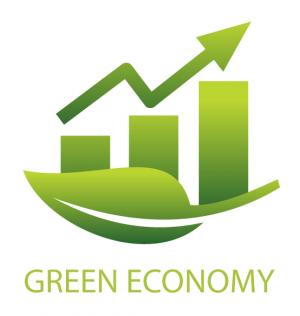Evergreen Cooperative Initiative (State of Ohio)
Description
Source: World Resources Institute (2011) A Compilation of Green Economy Policies, Programs, and Initiatives from Around the World. The Green Economy in Practice: Interactive Workshop 1, February 11th, 2011
The Evergreen Cooperative Initiative of Cleveland, Ohio, is an initiative launched to build capacity in Cleveland's low income areas. The Initiative is a partnership between the residents of six neighborhoods and some of Cleveland's most important anchor institutions the Cleveland Foundation, the City of Cleveland, Case Western Reserve University, the Cleveland Clinic, University Hospitals, and many others. The Initiative aims to leverage the procurement and investment power of these local anchors to build a network of cooperatively-owned, community-based businesses that supply goods and services to the institutions. The mission of the Cooperatives is not only to create jobs in sustainable businesses, but also to generate wealth for low-income residents. The first Evergreen Cooperative businesses include Evergreen Cooperative Laundry, Ohio Cooperative Solar, and Green City Growers Cooperative.
The Evergreen Cooperative Initiative businesses' employees are recruited from economically distressed neighborhoods surrounding Cleveland's University Circle; Evergreen Cooperative Laundry recruits its workers through a community nonprofit called Towards Employment. The Initiative supports local businesses that promote sustainable development goals and create new jobs. Ohio Cooperative Solar has weatherized 62 houses in low-income communities through Cleveland's Home Weatherization Assistance Program, and its first solar panel installation job is underway at the Cleveland Clinic. In May, it will install solar panels on the rooftops of the University Hospitals and Case Western Reserve, and it has been contracted to install panels on the city hall building and library in the nearby city of Euclid.
SDGS & Targets
Goal 8
Promote sustained, inclusive and sustainable economic growth, full and productive employment and decent work for all
8.1
8.1.1
Annual growth rate of real GDP per capita
8.2
Achieve higher levels of economic productivity through diversification, technological upgrading and innovation, including through a focus on high-value added and labour-intensive sectors
8.2.1
Annual growth rate of real GDP per employed person
8.3
Promote development-oriented policies that support productive activities, decent job creation, entrepreneurship, creativity and innovation, and encourage the formalization and growth of micro-, small- and medium-sized enterprises, including through access to financial services
8.3.1
Proportion of informal employment in total employment, by sector and sex
8.4
Improve progressively, through 2030, global resource efficiency in consumption and production and endeavour to decouple economic growth from environmental degradation, in accordance with the 10-Year Framework of Programmes on Sustainable Consumption and Production, with developed countries taking the lead
8.4.1
Material footprint, material footprint per capita, and material footprint per GDP
8.4.2
Domestic material consumption, domestic material consumption per capita, and domestic material consumption per GDP
8.5
8.5.1
Average hourly earnings of female and male employees, by occupation, age and persons with disabilities
8.5.2
Unemployment rate, by sex, age and persons with disabilities
8.6
8.6.1
Proportion of youth (aged 15-24 years) not in education, employment or training
8.7
Take immediate and effective measures to eradicate forced labour, end modern slavery and human trafficking and secure the prohibition and elimination of the worst forms of child labour, including recruitment and use of child soldiers, and by 2025 end child labour in all its forms
8.7.1
Proportion and number of children aged 5‑17 years engaged in child labour, by sex and age
8.8
Protect labour rights and promote safe and secure working environments for all workers, including migrant workers, in particular women migrants, and those in precarious employment
8.8.1
Fatal and non-fatal occupational injuries per 100,000 workers, by sex and migrant status
8.8.2
Level of national compliance with labour rights (freedom of association and collective bargaining) based on International Labour Organization (ILO) textual sources and national legislation, by sex and migrant status
8.9
By 2030, devise and implement policies to promote sustainable tourism that creates jobs and promotes local culture and products
8.9.1
Tourism direct GDP as a proportion of total GDP and in growth rate
8.10
Strengthen the capacity of domestic financial institutions to encourage and expand access to banking, insurance and financial services for all
8.10.1
(a) Number of commercial bank branches per 100,000 adults and (b) number of automated teller machines (ATMs) per 100,000 adults
8.10.2
Proportion of adults (15 years and older) with an account at a bank or other financial institution or with a mobile-money-service provider
8.a
8.a.1
Aid for Trade commitments and disbursements
8.b
By 2020, develop and operationalize a global strategy for youth employment and implement the Global Jobs Pact of the International Labour Organization
8.b.1
Existence of a developed and operationalized national strategy for youth employment, as a distinct strategy or as part of a national employment strategy
SDG 14 targets covered
Deliverables & Timeline
Resources mobilized
Partnership Progress
Feedback
Action Network


